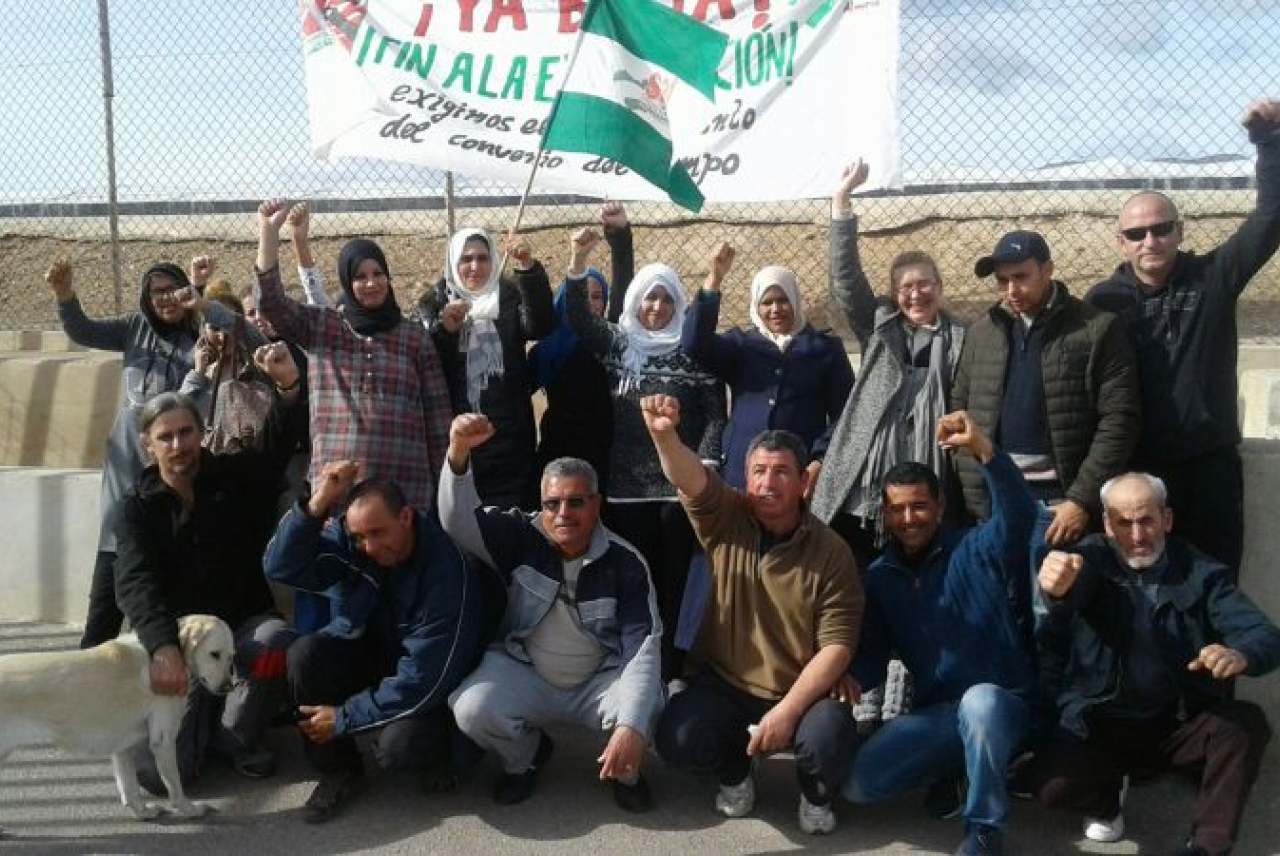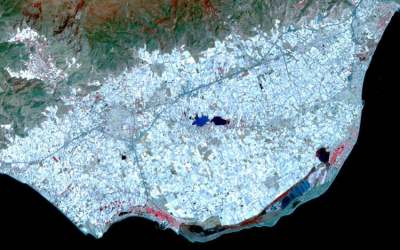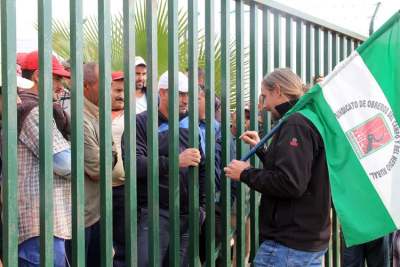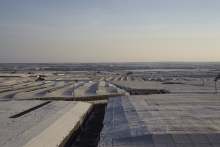Further research by Clare Carlile.
Nijar, one of the biggest municipalities in Spain, extends from arid rolling scrubland to the pristine beaches of the Cabo de Gata natural park. In the last twenty years or so, a sea of plastic has encroached eastwards, and the natural landscape now disappears under a tide of poly-tunnels. The small family-run greenhouses growing peppers, tomatoes, aubergines, courgettes, beans and melons for the Northern European supermarkets are gone. Now, big corporations, often with international finance, construct massive, state-of-the-art structures and the earth is mined for water. Every year, they export €283 million worth of produce to the UK, much of which goes to the biggest supermarkets.
Their gigantic greenhouses absorb a daily stream of workers from Morocco, sub-Saharan Africa and, decreasingly, from Eastern Europe and Andalusia. Shanty towns have grown up, periodically razed by the local councils. Uninhabitable buildings, often with no water supply, are divided up and rented out to house the immigrants who continue to arrive, risking their lives on precarious crafts organised by mafias that use the proximity of Andalusia to Africa to profit from the journey. The situation was first exposed in the UK in 2011. Yet little has changed since then.






